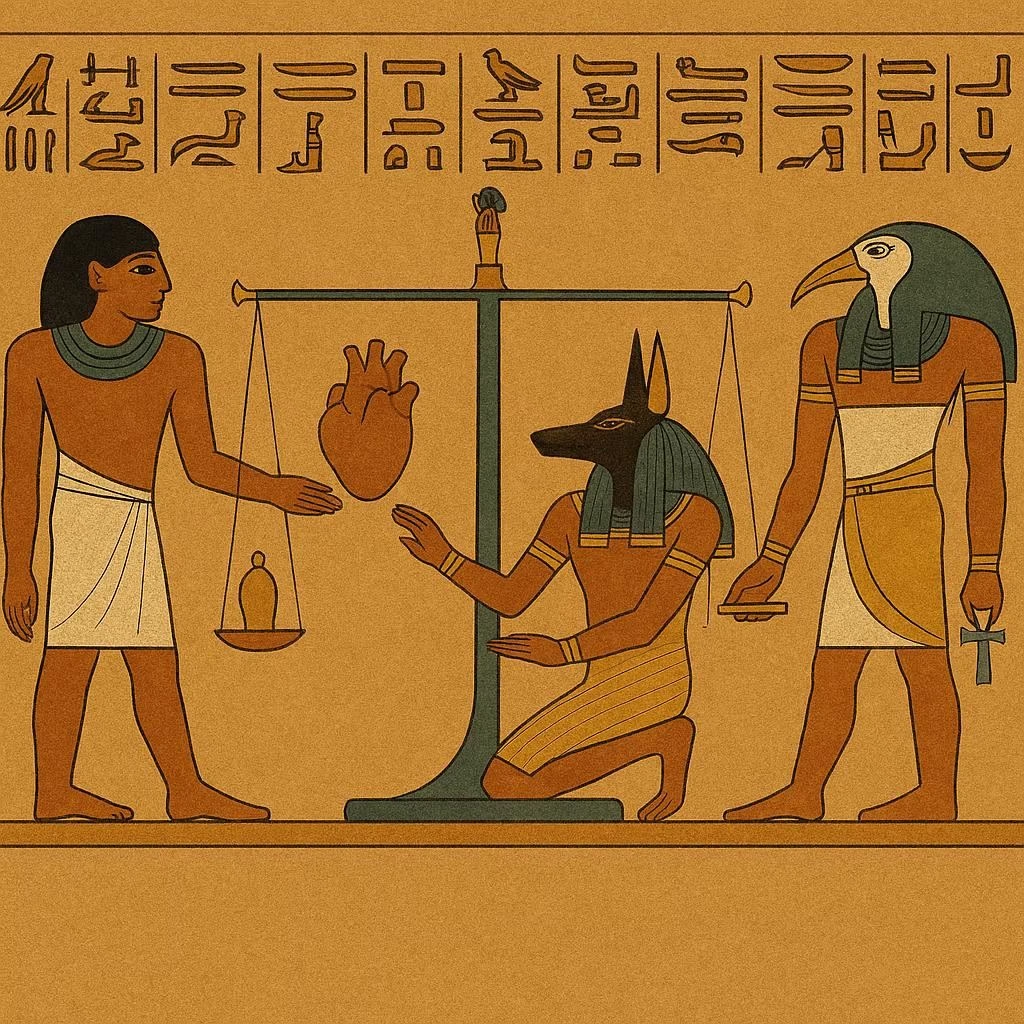Introduction
Most readers are familiar with the phrase cultural appropriation—the adoption of elements from another culture. In modern discussions, the term often carries ideological weight and is generally viewed negatively. My goal here is not to defend or critique cultural appropriation, but to show how Yahweh deliberately appropriates elements of Egyptian culture in Exodus to display His glory over Pharaoh.
We saw one example in last week’s message, where Yahweh appropriated the tactics of Pharaoh and his magicians when announcing the sixth plague. But there is another example running quietly in the background of the narrative—the matter of Pharaoh’s heart.
The Heart of the Matter
In Egyptian thought—as in many ancient cultures—the heart was considered the center of a person’s identity and moral being, even more significant than the soul. This belief is evident in at least two ways:
- During mummification, the heart was one of the few organs intentionally left in the body.
- Numerous heart-amulets were created to “guard” the heart in preparation for the afterlife.
A vivid example of this appears in the Papyrus of Hunefer, which you can view through the British Museum (search “Papyrus of Hunefer”). In “scene two” of that papyrus, the deceased stands before the scales in judgment. His heart is placed on one side of the scale and the feather of justice on the other.
A heavy heart—weighed down by sin—condemned a person to judgment. A light heart, lighter than a feather, indicated moral purity and granted access to the afterlife.
This Egyptian symbolism is essential for understanding what God is doing in Exodus.
A Word About Words
In a previous message, I noted that several Hebrew words are translated as hard or hardened in reference to Pharaoh’s heart: qasah, hazaq, and kāvēd. Each carries a slightly different nuance, but the last—kāvēd—literally means heavy.
This is significant.
The root kvd appears throughout the Exodus narrative. Pharaoh places heavy burdens on the Israelites (5:9), and God in turn makes Pharaoh’s heart heavy—not simply stubborn, but weighty, in a way that would have resonated deeply with Egyptian religious categories.
Yahweh is speaking Egypt’s cultural language back to Egypt.
The Heart of Pharaohs
Why does this matter?
Because Pharaoh was not merely a political ruler; he was believed to be the earthly embodiment of the gods Ra and Horus. As G.K. Beale notes in his article for the Trinity Journal, “Pharaoh’s heart was the all-controlling factor in history and society.” His heart—like the hearts of the gods—was thought to determine the fate of Egypt.
But in Exodus, Yahweh overturns this belief.
By making Pharaoh’s heart heavy, God demonstrates that Pharaoh is not the sovereign power he claims to be. Pharaoh’s heart—supposedly the force that orders the cosmos—fails the very test his own religion sets forth.
Yahweh appropriates Egypt’s symbolism of the heart and turns it into a divine polemic.
He shows that:
- Pharaoh is not in control.
- Pharaoh stands guilty before the true Judge.
- Yahweh alone determines the course of history.
Conclusion
In the end, the Exodus narrative shows that Yahweh is not merely defeating Pharaoh through displays of power—He is dismantling the very worldview that upheld Pharaoh’s authority. By using Egypt’s own symbols, language, and beliefs, Yahweh demonstrates that He alone defines reality, determines history, and judges the human heart. The heaviness of Pharaoh’s heart is not just a condition—it is a declaration.

